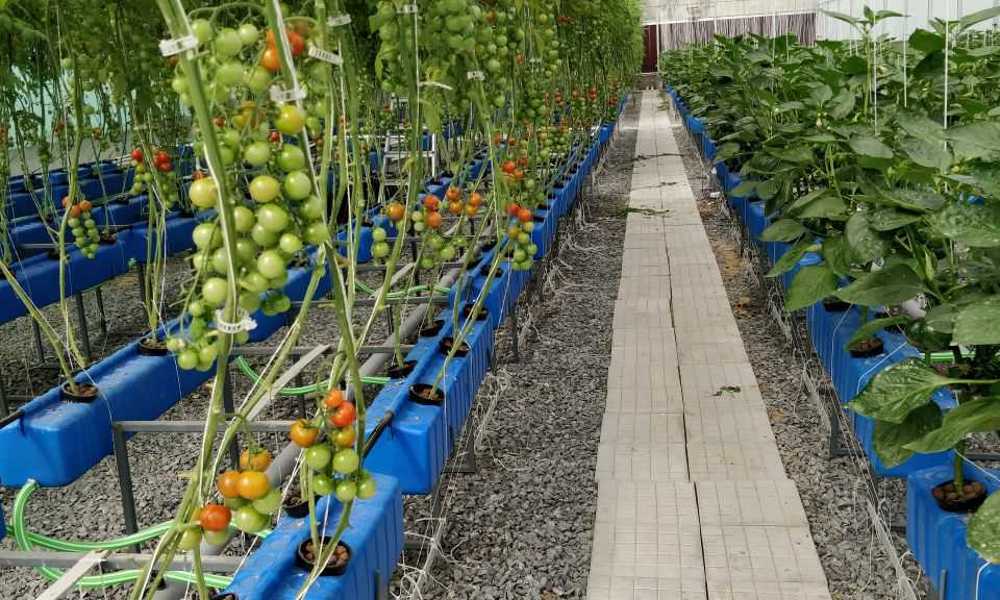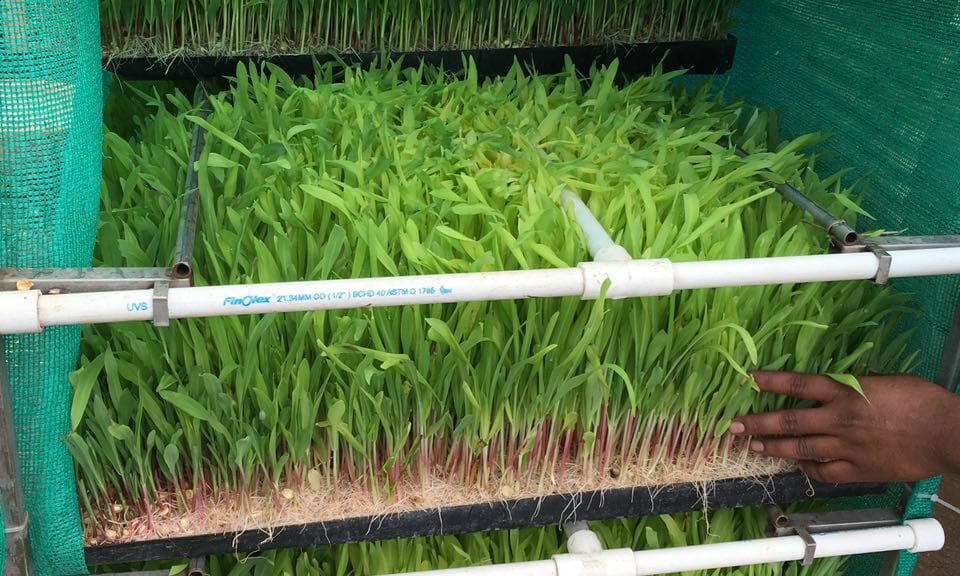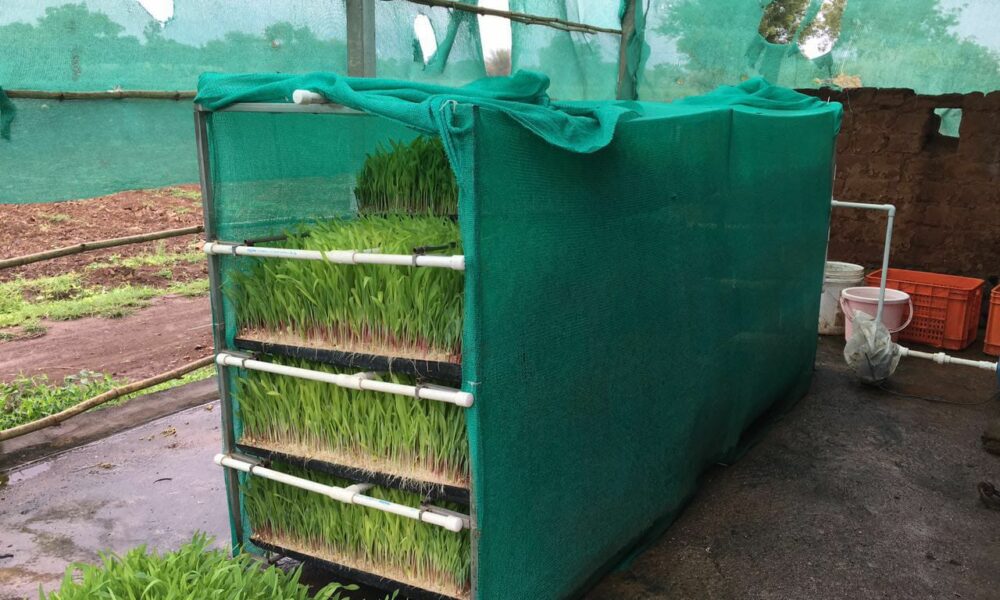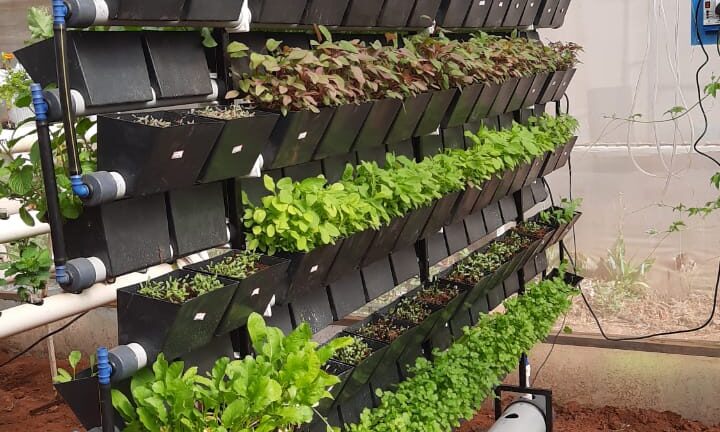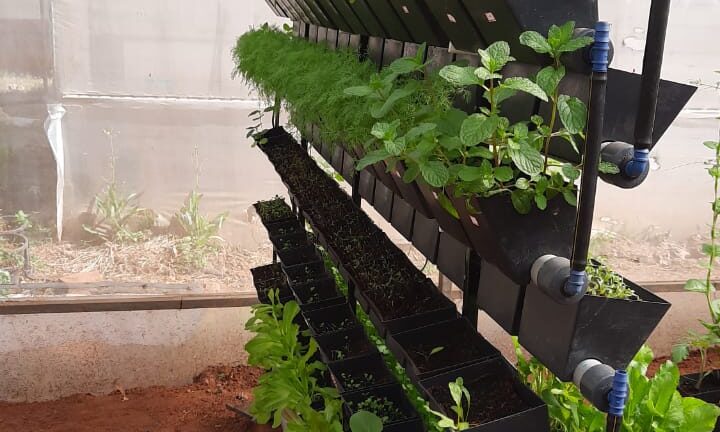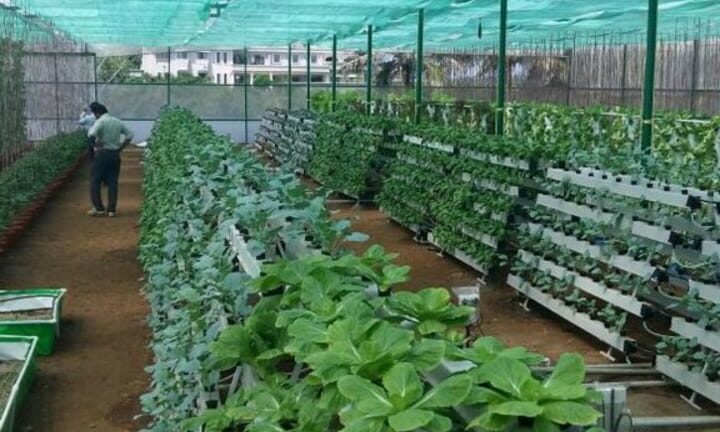Urbanites adopting suistainable farming thanks to hydroponics
The trend of hydroponics is taking off as agri-preneurs transform urban spaces into vertical farms that require no soil and use less water in Bengaluru.
The science of soil-less gardening is called hydroponics. It involves growing healthy plants without the use of traditional soil but by using mineral rich water solution instead. This method uses 75 percent less water than traditional farming.
Sunil Jose, Managing Partner, Hydrobloom, a start-up that promotes sustainable green progress said, since last year, hydroponic farming has become a highly refined art in terms of producers. “We have had large companies step in and lend a hand in this particular field that has grown between 80-300 percent as per each city’s demand generation.”
The founder of Clover Ventures, a greenhouse agri-tech company, Santosh Narasipura works with 60 small-scale farmers spread across approximately 70 acres around Bengaluru and Hyderabad.
Research shows, in 2018 hydroponic farming in India accounted for $2,624.26 and is expected to grow at a compound annual growth rate (CAGR) of 13.53 percent by 2027.
In a study by V. Chandrashekaran, the founder of a hydroponic technology company, soil-based lettuce production was 9 to 10 tons a year compared with hydroponic lettuce production of 300 to 400 tons a year.
Sunil said that if one acre of land produces 15-30 tonnes of tomatoes, then hydroponically 600 tonnes can be grown on the same area. He also said that hydroponic is often confused with organic farming. While soil has many unknown components, such as artificial fertilizer, synthetic chemicals etc., with hydroponics that is not the case, “we know precisely what we are growing.”
Tushar Agarwal, founder of Risehydro, said that hydroponics success rate for his company grew by 50 percent since the pandemic. Currently, an additional 25000 customers are learning about hydroponics compared to the last two years, which was 5000.
“One of the major factors driving the demand is that people are switching from soil to a more sustainable form of farming. This is because plants grown hydroponically grow faster and are healthier than those planted in soil, since they are provided nutrients directly through water, rather than through soil,” he added.
Amandeep, one of the hydroponics users, said, “I had no idea about hydroponics.” However, after attending online training classes held by various start-ups, I now have my own hydroponic system.
“There is a directive to prepare a plan on introducing the hydroponics method of cultivation. The state government has decided on the distribution of kits and tools for the trainees attending hydroponics classes. There is also a plan to popularise this method of cultivation among people who have private gardens as well as those living in apartments” Dhanraj, an official of the horticulture department said.
Ameya Warde, a customer said, “I had ordered 48 planters with Nutrient Film Technique (NFT). With the addition on of ideal nutrients I was able to grow leafy greens, keeping them under ideal climate level helped to reduce production time and increased the quality of crop.”
Challenges
M N Thimmegowda, Associate Professor, University of Agricultural Sciences, said that hydroponics is indeed a major attraction for city farmers. This is especially true of those who are keen to produce pesticide free vegetables, and those who are targeting commercial markets.
But, hydroponics are not cheap and has other issues like leaks and waterborne diseases.
Thimmegowda said, 50 percent subsidy in certain schemes has been allotted but the number of subsidies has been limited from the last two years because of the financial crisis in the state.
Likewise, Sunil added that, the initial investment is on the higher side, where minimum acre of land would cost around Rs. 2-2.5 crore, which is not economical for majority of the farmers in our country
Future of Hydroponics
“Hydroponics is a technical reality,” Sunil said, adding that they are working on real-time forecasts of higher yields based on data collections of producers.
Hydroponics and controlled environment agriculture practices have provided economic benefits to many communities all over the world. With land shortages, “we should push for more sustainable farming. Complete automation where the water will pump exactly how many the roots require and filter hole process and new innovations increase the aim of promoting hydroponics, he added.

